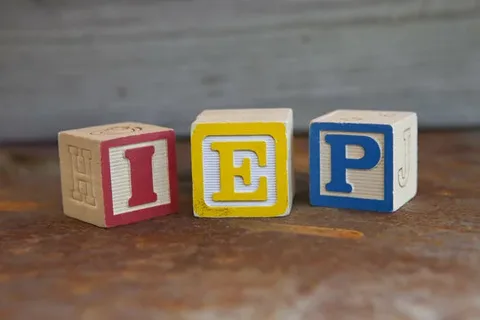Every child learns differently, and for some, traditional classroom settings don’t fully address their needs. That’s where schools offering an Individualized Education Program, or IEP, become essential. These schools provide a learning framework that tailors instruction, goals, and support to each child’s unique strengths and challenges. Enrolling your child in a school with an IEP is not simply about addressing learning differences—it’s about unlocking potential and creating an environment where growth is nurtured in every sense.
Personalized Learning Designed Around Your Child
In a traditional classroom, teaching methods are often standardized to serve the majority. However, for children who learn at a different pace or require special accommodations, this one-size-fits-all approach can be limiting. Schools with IEP programs design learning plans specifically for each student. Teachers and specialists collaborate to understand your child’s needs—whether they relate to speech, reading comprehension, attention, or social development—and craft a curriculum that meets them where they are.
This individualized approach gives children the confidence to learn without fear of being left behind. It acknowledges that intelligence and talent come in many forms, and with the right structure, every child can excel.
Dedicated Support and Professional Expertise
Schools with IEP programs employ a team of specialists who are trained to work with students who have learning differences. These professionals include special education teachers, occupational therapists, speech-language pathologists, and school psychologists. Their collective expertise ensures that children not only receive academic instruction but also emotional and behavioral support.
This integrated approach helps children feel seen, understood, and valued. They receive consistent guidance from professionals who know how to identify challenges early and provide interventions that prevent learning difficulties from escalating. The support extends beyond the classroom, often including strategies for home and family involvement, making the learning process more cohesive and effective.
Encouraging Emotional and Social Growth
Academic success is just one part of a child’s development. Equally important are emotional stability, self-esteem, and the ability to form healthy relationships. Children with learning or behavioral differences often struggle in environments that lack understanding or patience. Schools with IEP programs focus on fostering a positive self-image and teaching social skills that empower students to build meaningful connections.
These schools emphasize empathy, communication, and teamwork, helping children develop resilience and emotional intelligence. When a child feels supported and accepted, they are more willing to engage in learning and social interactions, which contributes to their overall happiness and sense of belonging.
Improved Communication Between Parents and Educators
One of the strongest aspects of an IEP-based education system is the collaborative partnership between parents and educators. Regular meetings, progress reports, and goal reviews keep parents actively involved in their child’s growth. Instead of feeling left out of their child’s academic journey, parents become integral members of the educational team.
This open communication builds trust and alignment. Parents and teachers work hand-in-hand to ensure strategies are consistent both at school and at home. When a child’s support network operates in harmony, progress accelerates, and challenges are addressed more effectively.
Building a Strong Foundation for Future Success
Children who receive tailored support through an IEP are better prepared to handle future challenges. By learning how to advocate for themselves, manage time effectively, and use personalized strategies to overcome difficulties, they gain skills that last well beyond their school years. These life skills foster independence and confidence, preparing them for higher education, employment, and social engagement.
Moreover, schools with iep programs often help children discover their strengths and interests early on. Whether it’s creative arts, problem-solving, or technology, students are encouraged to explore and develop talents that can shape future career paths. The combination of self-awareness and confidence creates a lifelong advantage.
Reducing Stress and Academic Pressure
In a traditional school environment, children who struggle with certain subjects can feel anxious or frustrated. This often leads to avoidance, low motivation, or even behavioral issues. IEP programs are designed to alleviate these pressures by pacing lessons appropriately and focusing on progress rather than perfection.
Instead of comparing themselves to others, students learn to celebrate their own growth. Teachers provide encouragement and positive reinforcement, which builds a child’s willingness to learn. Over time, school becomes a place of comfort rather than stress, and learning becomes something they enjoy rather than fear.
Promoting Inclusion and Acceptance
IEP schools promote a culture of inclusion, where diversity in learning styles and abilities is celebrated. Children grow up understanding that everyone learns differently, which instills empathy and acceptance at an early age. This inclusive atmosphere benefits not only those with IEPs but all students, as it fosters a respectful and cooperative learning environment.
Exposure to diverse learners also helps children develop patience and appreciation for differences—a quality that’s invaluable in adulthood. Inclusion teaches compassion and adaptability, shaping children into more understanding and open-minded individuals.
Continuous Monitoring and Adaptation
Children change as they grow, and so do their educational needs. Schools with IEP programs regularly review and adjust goals to reflect each child’s progress. This ensures that the learning plan remains effective and relevant at every stage.
Continuous monitoring prevents stagnation and ensures that support evolves alongside the student. Whether it’s introducing more advanced material or modifying techniques, this adaptability ensures consistent improvement and engagement.
Conclusion: Empowering Every Child to Succeed
Choosing a school with an IEP program is an act of empowerment—for both the child and the parents. It signals a commitment to recognizing individual potential and nurturing it through understanding, patience, and specialized care. Such schools are not about labeling students but about celebrating their uniqueness and giving them the tools to thrive academically, emotionally, and socially.
In an era where education often emphasizes speed and uniformity, IEP programs remind us of the importance of compassion and flexibility. When a child learns in an environment designed to support their individuality, they don’t just perform better—they grow into confident, capable individuals ready to face the world with resilience and joy.
